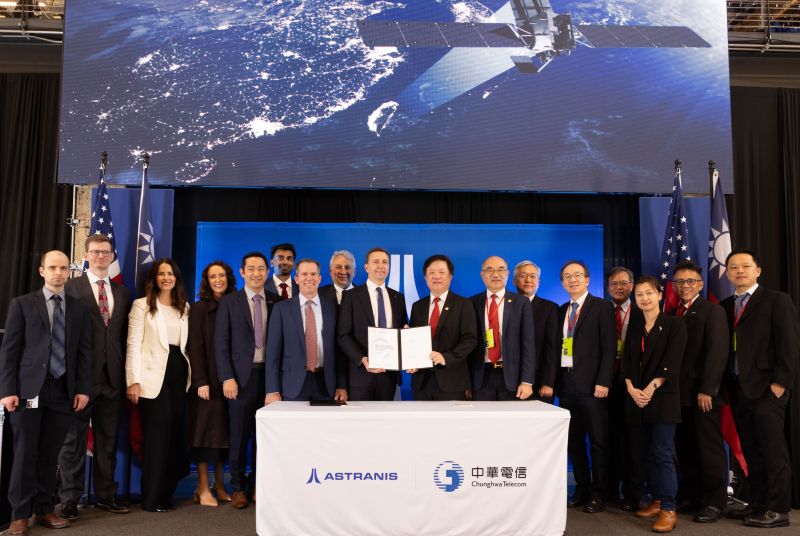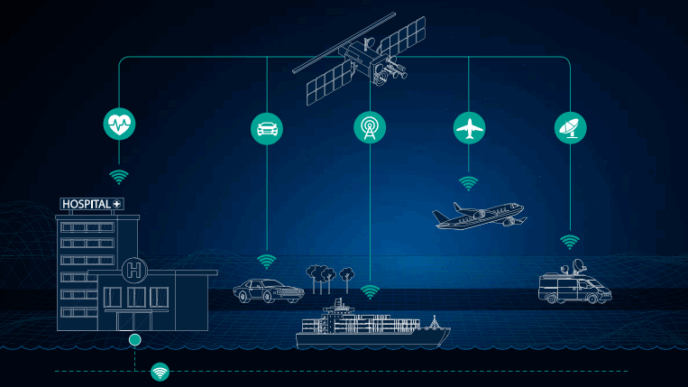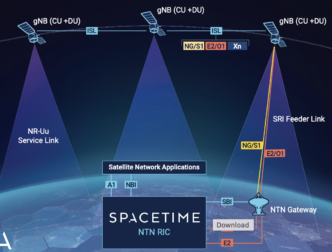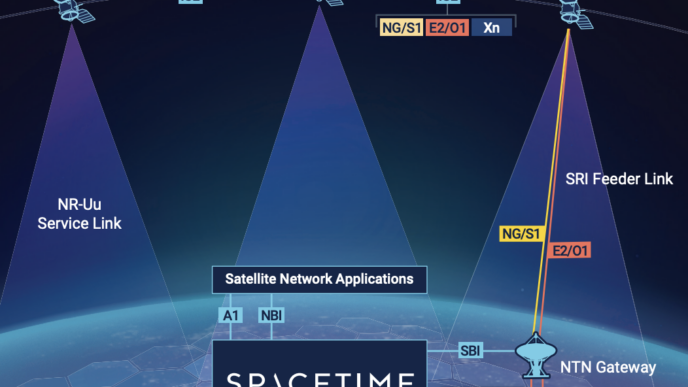Chunghwa Telecom has signed a strategic agreement with U.S. satellite company Astranis to launch Taiwan’s first dedicated communications satellite. Scheduled for deployment by the end of 2025, the MicroGEO satellite will deliver high-performance, rapidly deployable, and reliable connectivity tailored specifically to Taiwan’s needs.
The satellite will expand national satellite capacity and serve as a vital component in Chunghwa Telecom’s evolving Non-Terrestrial Network (NTN) strategy. It complements the company’s existing multi-orbit architecture, including the ST-2 geostationary satellite, OneWeb’s low Earth orbit (LEO) constellation, and SES’s medium Earth orbit (MEO) system—part of Chunghwa’s broader “Sea, Land and Sky” network vision.
“Chunghwa Telecom, as Taiwan’s leading, most valuable, and most trusted ICT service provider, has actively expanded its satellite initiatives in recent years,” said Dr. Alex C.C Chien, Chairman of Chunghwa Telecom. “Astranis’s MicroGEO solution introduces vital flexibility and resilience to our satellite strategy. This collaboration enables us to build a dedicated, secure digital infrastructure for Taiwan—one that can serve as a critical real-time backup against natural disasters, submarine cable disruptions, and evolving global uncertainties.”
Astranis brings its expertise in compact geostationary (MicroGEO) satellite technology to the partnership. These satellites are designed to deliver targeted, dedicated bandwidth where conventional approaches may be too slow or costly.
“Our founding vision nearly a decade ago was to provide dedicated satellite capacity where it is most needed, ensuring secure and independent communications. We are honored to partner with Chunghwa Telecom to enhance the resilience of Taiwan’s critical communications infrastructure,” said Astranis CEO John Gedmark.
This development underscores a growing global trend: the integration of satellite systems into terrestrial networks to ensure continuity, especially amid rising risks to undersea cables and other physical infrastructure. For Taiwan, a region highly exposed to both seismic activity and geopolitical tension, the move toward satellite-based resilience is especially timely.
As the telecom industry moves toward 6G and increasingly distributed network architectures, Chunghwa’s strategic investment signals the importance of Non-Terrestrial Networks in securing future connectivity. The deployment of MicroGEO satellites may also serve as a model for other nations seeking rapid, sovereign satellite capacity to support national infrastructure and critical services.














